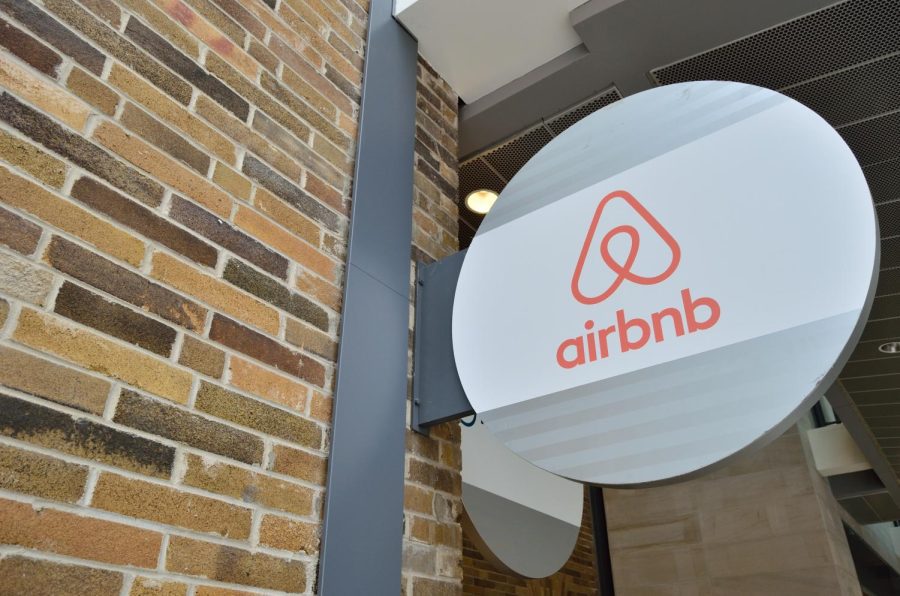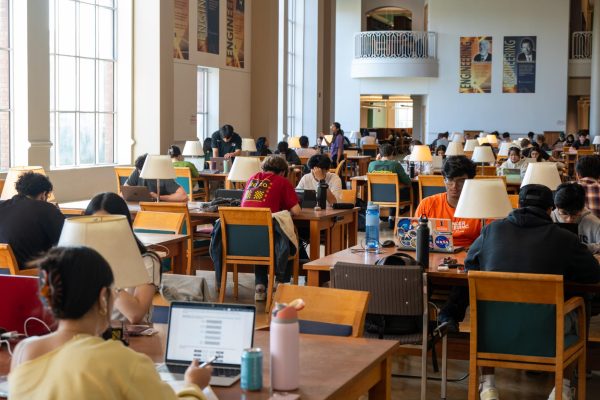Opinion | Airbnb depends on unsustainable business model
Photo courtesy of Open Grid Scheduler/Flickr
Senior columnist Andrew Prozorovsky argues that Airbnb has a range of flaws from costs to issues with hosts that prevent the company from succeeding.
August 10, 2022
Since it was founded 13 years ago, Airbnb has risen to become a competitive and novel type of travel accommodation. Alongside the many hostel and hotel options, Airbnb is a serious consideration for those actively booking their next vacation.
In many ways, Airbnb is impressively innovative. The original idea was that any individual could register as a host and rent out their property to those passing through the area. It has allowed luxurious, private lodging to be more accessible to travelers who find that hotel rooms are small and bland and that hostels lack privacy. In some coastal cities, even private boats can be rented through Airbnb.
Airbnb is a creative idea, but sadly its ideals are overshadowed by how terrible it is.
First, there is the issue with costs. Airbnbs are not more economic than a hostel or hotel, since many of the postings are misleading. On the final screen before securing a booking, one can see “service fees” and “cleaning fees” that significantly raise the price.
Despite “cleaning fees,” oftentimes the guests are still expected to clean before leaving, and sometimes the chore list is tedious and unreasonable. If the guests fail to meet the vague and arbitrary standard of cleanliness, the host sometimes will impose a separate cleaning fine or will leave the guests a bad review, which diminishes their opportunity to book in the future.
Get The Daily Illini in your inbox!
Then, there are the hosts. Airbnb was created as a way for private individuals to rent out their properties or free rooms. But now, most hosts are either opportunistic proprietors or a company.
This type of relationship introduces ethical problems, but also the typical problems with a landlord: occasional invasion of privacy, disagreement over responsibilities, earning money simply off of owning a property that one doesn’t occupy.
There is even less incentive to respect or demonstrate compassion to the guests since the relationship is not longterm. The ability for guests and hosts to review one another provides some mechanism for accountability, but there are various problems with the review process and, if you feel you have been unfairly reviewed, Airbnb’s ineffective customer service will be slow to evaluate your complaint.
Although hosts are obligated to disclose cameras, there is an abundance of stories of surveillance cameras that are intrusive and not well-disclosed in the booking. I can’t think of something less relaxing on vacation than being monitored by a camera to ascertain all rules are being followed.
Somewhere the misconception was created that Airbnb is an easy way to profit off of a property while doing minimal work and delegating most chores to the guests. First cleaning fees and then a list of chores? I would rather stay elsewhere.
Aside from authoritative hosts, exorbitant fees and duties, Airbnb’s worst problem is that it is unethical.
Airbnb ruins communities by allowing areas zoned for residential housing to be bought and rented to tourists. In touristy areas where there are housing shortages, like New Orleans or Montreal, Airbnb takes housing away from locals, exacerbates the crises and drives up rents.
So when a company is responsible for your Airbnb booking, consider how the property is not owned by some snowbird, it’s an enterprise that deliberately bought up multiple available properties for the purpose of turning them into an Airbnb profit chain.
For this reason and because Airbnb postings often violate local housing ordinances, some cities have heavily regulated Airbnb or, in some cases, completely outlawed it.
Despite this, illegal Airbnb postings exist everywhere. In 2015, an analysis suggested that up to 58% of New York Airbnb listings are illegal.
Whether it’s steep prices, antagonistic and lazy hosts or an unethical business model, Airbnb’s worth is outweighed by its lack of quality service and harm inflicted to many communities.
Part of the problem is that Airbnb has cornered its market and lacks strong competitors. An “Airbnb” has become a term to describe its specific type of private accommodation. Perhaps with time, as local governments react and people see the destructive nature of Airbnb, the term will be reclaimed and synonymized with a housing option to avoid on your next vacation.
Otherwise, enjoy your vacation away from home, spending your time in Venice cooking and cleaning. It sounds appetizing.
Andrew is a senior in LAS.







